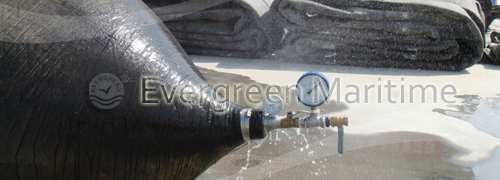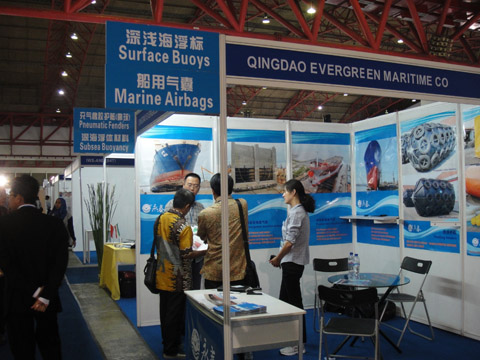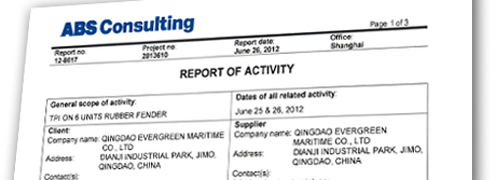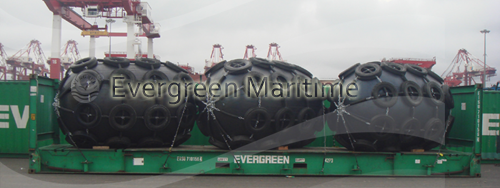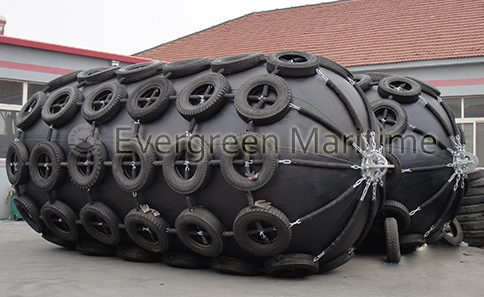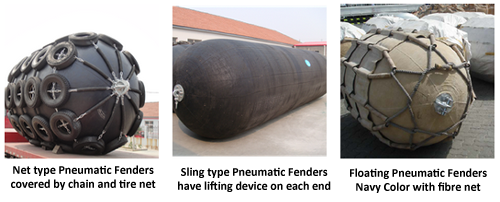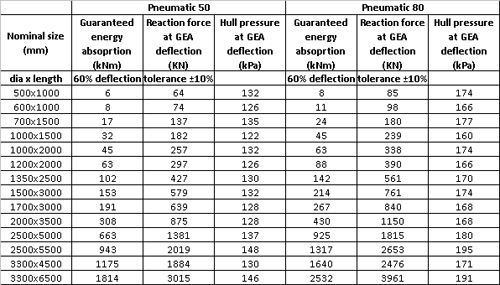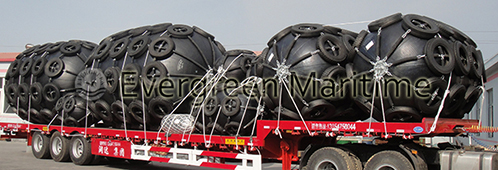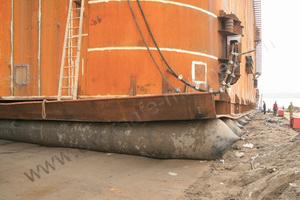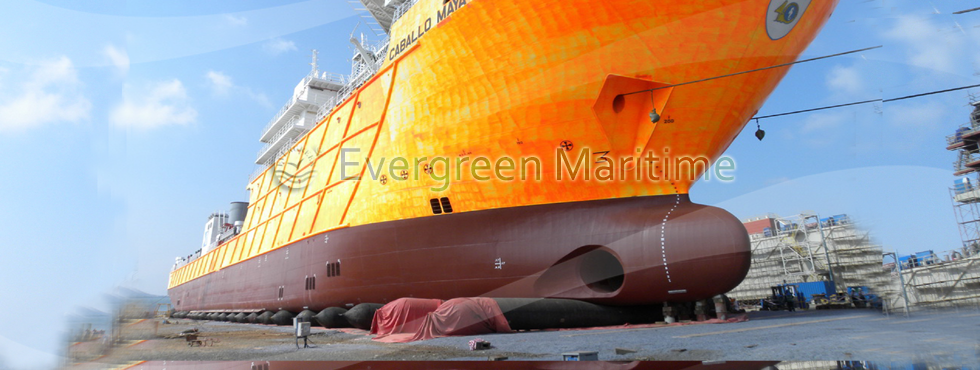Floating Pneumatic Rubber Fenders which is made of synthetic-cord-reinforced rubber sheet with compressed air inside to enable it to float on the water and work as a shock absorber between two ships (ship-to-ship), or between ships and berthing structures when they come alongside each other on the water.
Note: The floating pneumatic rubber fenders have sometimes been colloquially referred to as “Yokohama Fenders” or “Yokohama type fenders” – ISO 17357:2002 Ships and marine technology — High-pressure floating pneumatic rubber fenders.
Advantages of Floating Pneumatic Rubber Fenders
Floating pneumatic rubber fenders can be easily handled and installed with guy-rope or guy-chain because of its light weight. It can resist the shearing force and maintain energy absorption level under inclined compressionup to 15 degrees. Meanwhile, provide the low and comparatively even hull pressure.
Consisted of several synthetic-cord layers and tough abrasion resistant out rubber, they have consistent performance even under rough condition and cyclic load. The maintenance cost and damage risk are minimised too. The best material also ensure the self-buoyancy and extremely long service life.
Floating Pneumatic Rubber Fenders Requirements
Construction features
Floating pneumatic rubber fenders shall consist of an out rubber, reinforcement synthetic-tyre-cord layer, and inner rubber, vulcanized firmly.
● The out rubber are used to protect the cord layers and inner rubber from abrasion and other external forces. This rubber compound have sufficient tensile and tear resistance strength to withstand anticipated weather conditions and severe usage.
● The reinforcement synthetic-tyre-cord layer strong enough to maintain the internal air pressure of the fender
● The inner rubber layer seals the pressurized air inside the fender
● Fenders of diameter 2500mm and larger equipped with safety valve for releasing excess internal pressure when the fenders are over-compressed accidentally.
The properties requirements of outer and inner rubber material of floating pneumatic rubber fenders comply with ISO 17357:2002.
Floating Pneumatic Rubber Fenders’ Type
Pressure requirements of floating pneumatic rubber fenders
Evergreen-Maritime make floating pneumatic rubber fenders with 50kPa (pneumatic 50) and 80kPa (pneumatic 80) initial pressure. The internal pressure, endurable pressure, safety-valve setting pressure and hydraulic test pressure are also in compliance with the requirements of ISO 17357:2002.
Test and Inspection for Commercial Floating Pneumatic Rubber Fenders
Acceptance testing and inspection for purchased floating pneumatic rubber fenders shall be based on the tests and inspections indicated below:
● 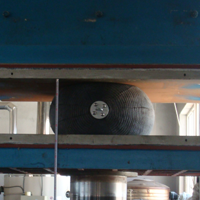 Material test of rubber — Conducted in accordance with the Physical properties of inner and outer rubber required by ISO 17357:2002
Material test of rubber — Conducted in accordance with the Physical properties of inner and outer rubber required by ISO 17357:2002
● Dimensional inspection — shall be inspected at the initial internal pressure. Tolerance: +10%, -5%.
● Air-leakage test — shall be conducted at initial pressure for more than 30 min
● Hydrostatic-pressure test — shall be performed for 10 min at the hydrostatic pressure shown in “test pressure at 0% deflection”. Maximum temporary elongation: 10%
Floating Pneumatic Rubber Fender Performance
The performance of floating pneumatic rubber fenders shall be specified in terms of Guaranteed Energy Absorption (GEA), Reaction Force at GEA deflection, and Hull Pressure at GEA deflection.
All Evergreen Maritime floating pneumatic rubber fenders are manufactured and third party (ABS, LR, BV, CCS) certified in compliance with ISO 17357:2002.
To see more pictures by our Alibaba showroom.


